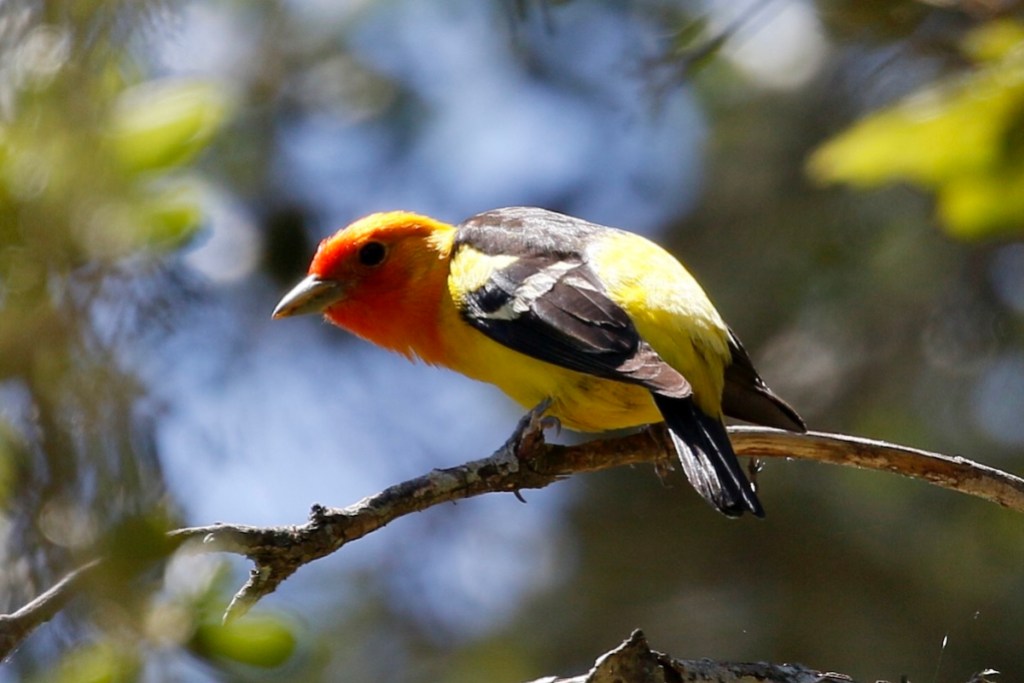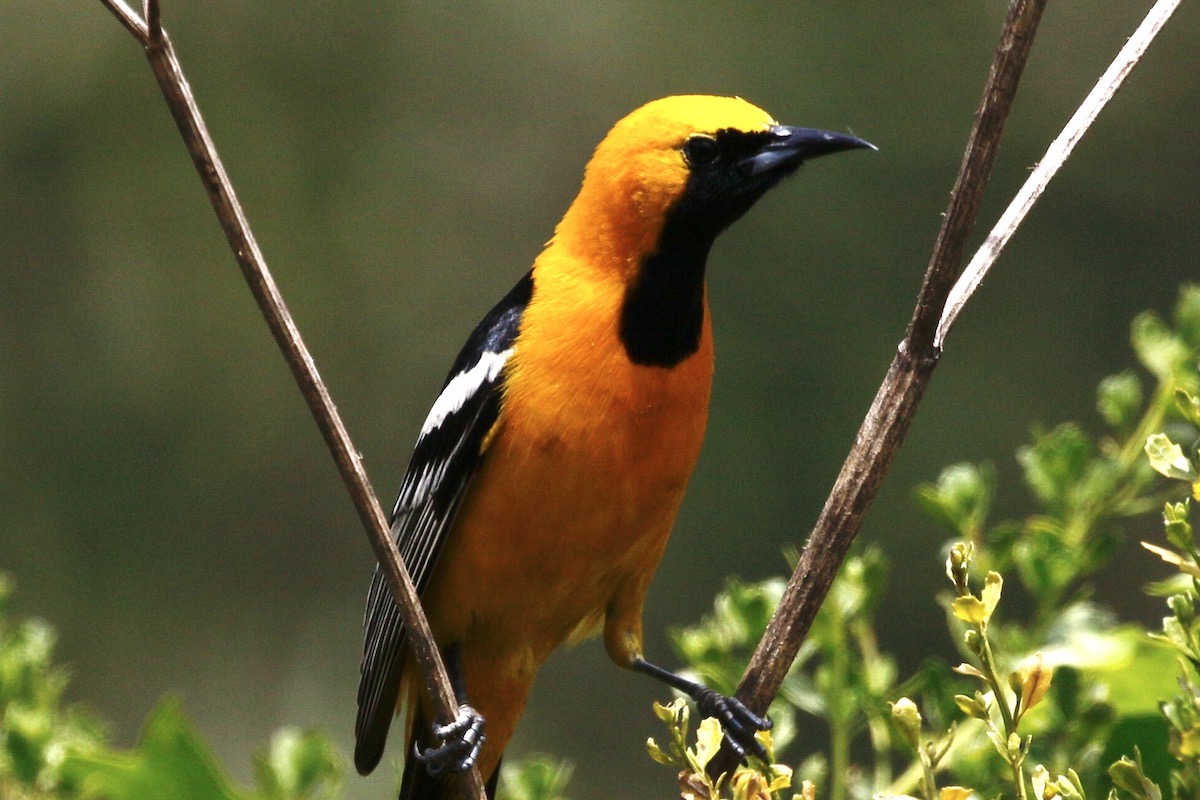He comes in March in black and gold
Shouts from the top of the flowering oak —
“Out with the drab, the grey, and the old” —
Then hides himself in nature’s cloak
A bird I always associate with St. Patrick’s Day, because I invariably hear the first one of the year a few days on either side of March 17th, is the hooded oriole. This year, perhaps because of the cooler weather, wintering birds didn’t depart their wintering grounds in Mexico until later than usual, and I didn’t see my first until early April. Now, however, wherever I go I’m hearing, and sometimes seeing, these stunning birds. They can be hard to miss as they cavort along tree-lined streets, the males flashing their brilliant yellow-orange and black finery.

Hooded orioles have an affinity for palm trees and often weave their hanging nests on the underside of palm fronds. The more cryptically colored green and yellow females poke holes on the underside of palm fronds and push plant fibers through these holes, effectively sewing their hanging basket nests to the underside of the fronds.
Hooded orioles are one of the few bird species to have benefited from human activity. The planting of palm trees in parks and around houses has allowed the birds to spread north, and they are now found nesting in Humboldt County.
Despite their bright colors, hooded orioles can be difficult to spot as they move through dense foliage, often at the tops of trees. They are much easier to detect if you learn to recognize the chattering calls and jumbling birdsong. They also commonly give an up slurred “wheep” call that carries for great distances. They feed on insects and spiders but are also fond of fruit and nectar. Indeed, they are often drawn to hummingbird feeders. Occasionally hooded orioles will spend the winter with us, often taking advantage of the food provided for hummingbirds.

Orioles, perhaps surprisingly, are members of the blackbird family, and like the other birds in the group, have long, strong, pointed beaks. They use these bills to get at food that is unavailable to other birds and are able to open up flowers and dig into fruits for the juices.
Along with the orioles, other species have also arrived from the south and are settling in to nest, such as the bright-plumaged, black-headed grosbeak and yellow warbler. A few passage migrants — birds that stop here for a short time on migration — are still moving through, though these birds will have completed their travels by the month’s end. A few western tanagers, red, yellow, and black denizens of the mountains, are being seen along the creeks but will soon have moved on.

It’s been a disappointing spring for the numbers of migrants moving through our area. The prevailing theory is that, because there has been so much rain throughout the west, there has been an abundance of food in inland areas, meaning birds haven’t hugged the food-rich coastal strip as they often do. This also holds true for the hummingbird migration. In dry years we often see great numbers of migrant hummingbirds — rufous, black-chinned, and sometimes the diminutive calliope — moving up the coast, but this year there is an abundance of nectar in the often-barren deserts so most birds have passed us by.
The resident Anna’s hummingbird, though, is still much in evidence. It is an early nester, sometimes raising young as early as January. In recent years, perhaps as a result of climate change, Allen’s hummingbirds, once largely a summer bird here, have become common residents. The males can easily be told from the Anna’s by their orange bellies and tails.
Keep your eyes and ears open for our summer birds and especially the hooded oriole, which is perhaps our brightest harbinger of spring.

 on Google
on Google 



You must be logged in to post a comment.